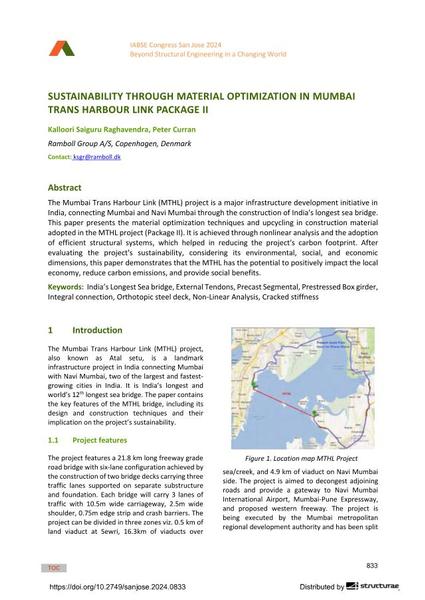Sustainability Through Material Optimization in Mumbai Trans Harbour Link Package II

|
|
|||||||||||
Détails bibliographiques
| Auteur(s): |
Kalloori Saiguru Raghavendra
(Ramboll Group A/S, Copenhagen, Denmark
)
Peter Curran (Ramboll Group A/S, Copenhagen, Denmark ) |
||||
|---|---|---|---|---|---|
| Médium: | papier de conférence | ||||
| Langue(s): | anglais | ||||
| Conférence: | IABSE Congress: Beyond Structural Engineering in a Changing World, San José, Cost Rica, 25-27 Seotember 2024 | ||||
| Publié dans: | IABSE Congress San José 2024 | ||||
|
|||||
| Page(s): | 833-840 | ||||
| Nombre total de pages (du PDF): | 8 | ||||
| DOI: | 10.2749/sanjose.2024.0833 | ||||
| Abstrait: |
The Mumbai Trans Harbour Link (MTHL) project is a major infrastructure development initiative in India, connecting Mumbai and Navi Mumbai through the construction of India's longest sea bridge. This paper presents the material optimization techniques and upcycling in construction material adopted in the MTHL project (Package II). It is achieved through nonlinear analysis and the adoption of efficient structural systems, which helped in reducing the project's carbon footprint. After evaluating the project's sustainability, considering its environmental, social, and economic dimensions, this paper demonstrates that the MTHL has the potential to positively impact the local economy, reduce carbon emissions, and provide social benefits. |
||||
